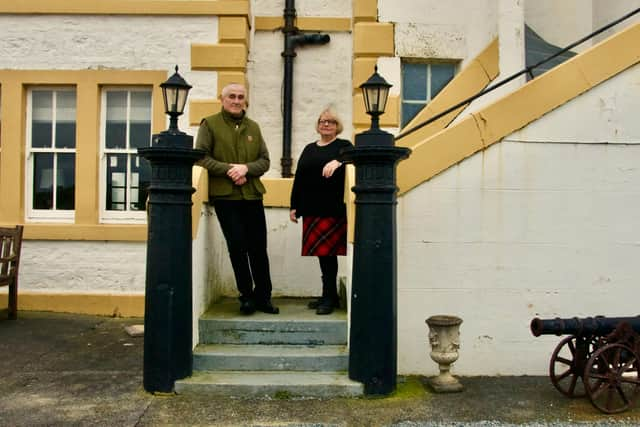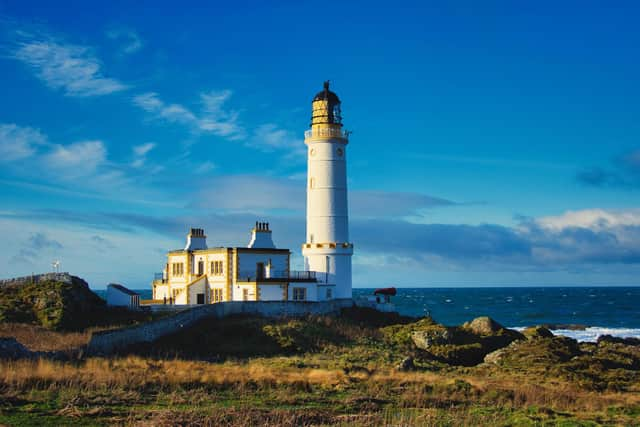Norfolk couple quit their jobs and move 400 miles to take over remote Scottish lighthouse
The historic Corsewall Lighthouse was built in 1815 by the engineer Grandfather of legendary Scots author Robert Louis Stevenson, and is perched on the northern coast of the Rhinns of Galloway, near Stranraer.
The couple put £400,000 of their life savings towards the purchase of the property, which is connected to the main tower, and secured a £165,000 commercial mortgage from specialist finance group Together.
Advertisement
Hide AdAdvertisement
Hide AdJohn Harris, 62, and Helen Mason, 60, then upped sticks from Norfolk to realise their dream, having fallen in love with the property when visiting eight years before.
The pair will start operating the boutique hotel when the UK hospitality sector re-opens after lockdown restrictions are lifted.
Helen, a former Head of Music Service said: “We came up here and stayed in a friend’s bothy about eight years ago, saw the area and fell in love with it.
“We almost forgot about it but once Covid hit, we decided that the time was right for us to make a change.
“When we saw the hotel was for sale, we realised it could be the ideal opportunity.


“It’s perfect for John’s photography and builds on my love of working with people and interest in food and hospitality. After spending a week there in the summer we were sure this is what we wanted.”
Set in 20 acres on one of Scotland’s most spectacular stretches of coastline, the lighthouse has acted as the backdrop for TV and films – playing host to Hollywood actor Gerard Butler who filmed blockbuster The Vanishing there – and even has its own ruined Iron Age fort, Dunskirloch, on site.
“It’s a hidden gem,” said John, who was a project manager with BT before taking up photography professionally.
Advertisement
Hide AdAdvertisement
Hide Ad“We’ve got some of the oldest rock formations in the UK, dating back to when Scotland was connected to Newfoundland in Canada, and the rocks are particular to the Scottish coast.


“During World War II, the lighthouse was blackened with soot to hide it from German bombers. But the Luftwaffe accidentally bombed it anyway, mistaking it for key military targets across the Irish Sea in Belfast.
“There are four resident deer, seals, porpoises and a sea otter has been seen swimming around the lighthouse. It’s a photographer’s dream.”
After buying the lighthouse hotel through estate agent, Christie and Company, the couple have made a few tweaks to the property – opening up some of the informal dining areas and removing some of the dated ornaments the previous owners had left behind.
They have retained the five staff members who had been working at the hotel before its change of ownership and plan to employ more seasonal workers in the summer.
Steven Clark, regional development director for Scotland at Together, said: “The lighthouse hotel is a Grade A-listed building with a fascinating history in a beautiful, remote area of coastal Scotland.
“After hearing Helen and John’s plans for its future, we were delighted that we were able to provide the finance they needed, helping them follow their ambitions and complete their dream move.”
A message from the Editor:
Thank you for reading this article. We're more reliant on your support than ever as the shift in consumer habits brought about by coronavirus impacts our advertisers.
If you haven't already, please consider supporting our trusted, fact-checked journalism by taking out a digital subscription.
Comments
Want to join the conversation? Please or to comment on this article.